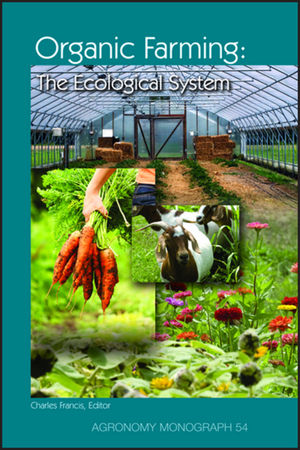
Organic farming and ecosystem health are deeply interconnected, with organic farming practices playing a crucial role in enhancing and maintaining ecosystem balance. Organic farming and ecosystem management focus on integrating agricultural practices with natural processes to promote sustainability, biodiversity, and environmental health. This approach contrasts sharply with conventional farming methods that often rely on synthetic chemicals and intensive practices that can disrupt ecological balance.
One of the fundamental principles of organic farming and ecosystem health is the emphasis on soil fertility and structure. Organic farming improves soil health by utilizing natural composts, green manures, and crop rotations, which enhance soil organic matter and microbial activity. By avoiding synthetic fertilizers and pesticides, organic farming reduces soil degradation and chemical runoff, which can harm surrounding ecosystems. Healthy soils contribute to a more resilient ecosystem by supporting a diverse community of microorganisms, earthworms, and other beneficial organisms that play a key role in nutrient cycling and plant health.

Organic farming and ecosystem management also prioritize the use of biodiversity to enhance resilience and productivity. Diverse cropping systems and the inclusion of various plant species in organic farming systems create habitats for beneficial insects, birds, and other wildlife. For example, planting cover crops and maintaining hedgerows can attract pollinators and natural pest predators, reducing the need for chemical pest control. Biodiversity in organic farming systems contributes to ecosystem stability by preventing the spread of pests and diseases and enhancing soil health through the presence of different root structures and plant residues.
In addition to promoting biodiversity, organic farming practices contribute to the protection and enhancement of water resources within an ecosystem. By reducing the reliance on synthetic chemicals and adopting practices like buffer zones and proper waste management, organic farming minimizes the risk of water contamination from runoff. Techniques such as mulching, cover cropping, and conservation tillage help retain soil moisture, reduce erosion, and prevent nutrient leaching into water bodies. This sustainable approach supports healthier aquatic ecosystems by reducing nutrient pollution and preserving water quality.
Organic farming and ecosystem health are also closely linked through the management of pests and diseases. Instead of relying on synthetic pesticides, organic farming employs integrated pest management (IPM) strategies that utilize biological controls, physical barriers, and cultural practices to manage pests. By fostering natural predator-prey relationships and using organic-approved treatments, organic farming minimizes the impact on non-target organisms and reduces the risk of pesticide resistance. This approach helps maintain a balanced ecosystem where natural predators can thrive and effectively control pest populations.
Furthermore, organic farming practices enhance ecosystem health by promoting climate resilience and reducing greenhouse gas emissions. Organic farming systems often use practices such as reduced tillage and increased soil organic matter, which sequester carbon and improve soil structure. This contributes to lower greenhouse gas emissions and helps mitigate climate change. Additionally, organic farming’s focus on local and seasonal production reduces the carbon footprint associated with transportation and long-distance supply chains.
Animal welfare is another important aspect of the relationship between organic farming and ecosystem health. Organic livestock systems provide animals with access to pasture, allow them to exhibit natural behaviors, and avoid the use of synthetic hormones and antibiotics. This approach not only improves animal well-being but also supports ecosystem health by integrating livestock into the farm’s nutrient cycle. Manure from organic animals is used as a valuable resource for composting and soil fertility, further enhancing the farm’s ecological balance.
Organic farming and ecosystem health are reinforced by the certification process, which ensures that farms adhere to specific environmental standards and practices. Organic certification requires farmers to follow guidelines that support ecosystem health, including the use of organic inputs, conservation practices, and sustainable resource management. Certification provides consumers with confidence that their food is produced in harmony with ecological principles and supports a healthier environment.
Despite its many benefits, organic farming and ecosystem management face challenges such as lower yields and higher labor costs compared to conventional methods. However, ongoing research and innovation in organic farming practices are addressing these challenges and improving the efficiency and sustainability of organic systems. Advances in organic breeding, pest management, and soil health research are contributing to the development of more resilient and productive organic farming systems.
In conclusion, the relationship between organic farming and ecosystem health is integral to creating a sustainable and balanced agricultural environment. By emphasizing soil health, biodiversity, water conservation, and climate resilience, organic farming practices contribute to a healthier and more resilient ecosystem. Through natural and sustainable methods, organic farming supports the intricate web of interactions that maintain ecological balance, providing benefits for both the environment and agricultural productivity. The continued advancement of organic farming practices and research will further enhance the positive impact of organic farming on ecosystem health, paving the way for a more sustainable future.









